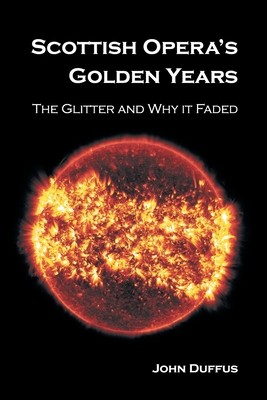
- We will send in 10–14 business days.
- Author: John Duffus
- Publisher: New Generation Publishing
- ISBN-10: 1803691883
- ISBN-13: 9781803691886
- Format: 15.6 x 23.4 x 1.6 cm, softcover
- Language: English
- SAVE -10% with code: EXTRA
Reviews
Description
Only six years after its unlikely founding in 1962, the young Scottish Opera entered a period of a dozen years when it could do little wrong.
The Company was the brainchild of Sir Alexander Gibson, a conductor who was to prove the most pivotal and vital force in the development of music in Scotland during the 20th century. Under his guidance, so impressive were so many of Scottish Opera's productions that those years were named "The Golden Years". Productions like Cosi fan tutte with the incomparable pairing of Dame Janet Baker and Elizabeth Harwood, the complete Berlioz Trojans again featuring Dame Janet with Ronald Dowd as her Aeneas, the glorious young dramatic soprano Helga Dernesch as Leonore in Fidelio, Dernesch, Baker and Harwood teaming up again in Der Rosenkavalier, and Scotland's own world class bass baritone David Ward as Wotan in an extraordinary Ring cycle at the end of 1971.
More gems were to appear in the early 1970s. The crowning glory of those years, though, was the acquisition, financing and refurbishment of Glasgow's Theatre Royal as both Scottish Opera's home theatre and Scotland's first opera house. Scottish Opera seemed ready to reach new heights.
Very quickly, though, the glitter started to fall away. The Golden Years came to their end in late 1978. Scottish Opera then entered into a period of uncertainty, financial crises and ill thought through senior management appointments to the point where it was in a state of near chaos by the mid-1980s. The end result of the financial and other crises of the years that followed was the closure of the Company for a year as mandated by its main funding partner, the Scottish Executive. With Scottish Opera now once again close to another golden era, it is time to reconsider the Golden Years and the reasons for what followed.
Joining the Company in January 1971, John Duffus traces his personal journey through The Golden Years. Although no longer a member of the Company after the end of 1978, through his later regular meetings and discussions with many key figures in Scottish Opera, he then outlines his personal reasons why the glitter fell away.
EXTRA 10 % discount with code: EXTRA
The promotion ends in 20d.11:28:39
The discount code is valid when purchasing from 10 €. Discounts do not stack.
- Author: John Duffus
- Publisher: New Generation Publishing
- ISBN-10: 1803691883
- ISBN-13: 9781803691886
- Format: 15.6 x 23.4 x 1.6 cm, softcover
- Language: English English
Only six years after its unlikely founding in 1962, the young Scottish Opera entered a period of a dozen years when it could do little wrong.
The Company was the brainchild of Sir Alexander Gibson, a conductor who was to prove the most pivotal and vital force in the development of music in Scotland during the 20th century. Under his guidance, so impressive were so many of Scottish Opera's productions that those years were named "The Golden Years". Productions like Cosi fan tutte with the incomparable pairing of Dame Janet Baker and Elizabeth Harwood, the complete Berlioz Trojans again featuring Dame Janet with Ronald Dowd as her Aeneas, the glorious young dramatic soprano Helga Dernesch as Leonore in Fidelio, Dernesch, Baker and Harwood teaming up again in Der Rosenkavalier, and Scotland's own world class bass baritone David Ward as Wotan in an extraordinary Ring cycle at the end of 1971.
More gems were to appear in the early 1970s. The crowning glory of those years, though, was the acquisition, financing and refurbishment of Glasgow's Theatre Royal as both Scottish Opera's home theatre and Scotland's first opera house. Scottish Opera seemed ready to reach new heights.
Very quickly, though, the glitter started to fall away. The Golden Years came to their end in late 1978. Scottish Opera then entered into a period of uncertainty, financial crises and ill thought through senior management appointments to the point where it was in a state of near chaos by the mid-1980s. The end result of the financial and other crises of the years that followed was the closure of the Company for a year as mandated by its main funding partner, the Scottish Executive. With Scottish Opera now once again close to another golden era, it is time to reconsider the Golden Years and the reasons for what followed.
Joining the Company in January 1971, John Duffus traces his personal journey through The Golden Years. Although no longer a member of the Company after the end of 1978, through his later regular meetings and discussions with many key figures in Scottish Opera, he then outlines his personal reasons why the glitter fell away.


Reviews